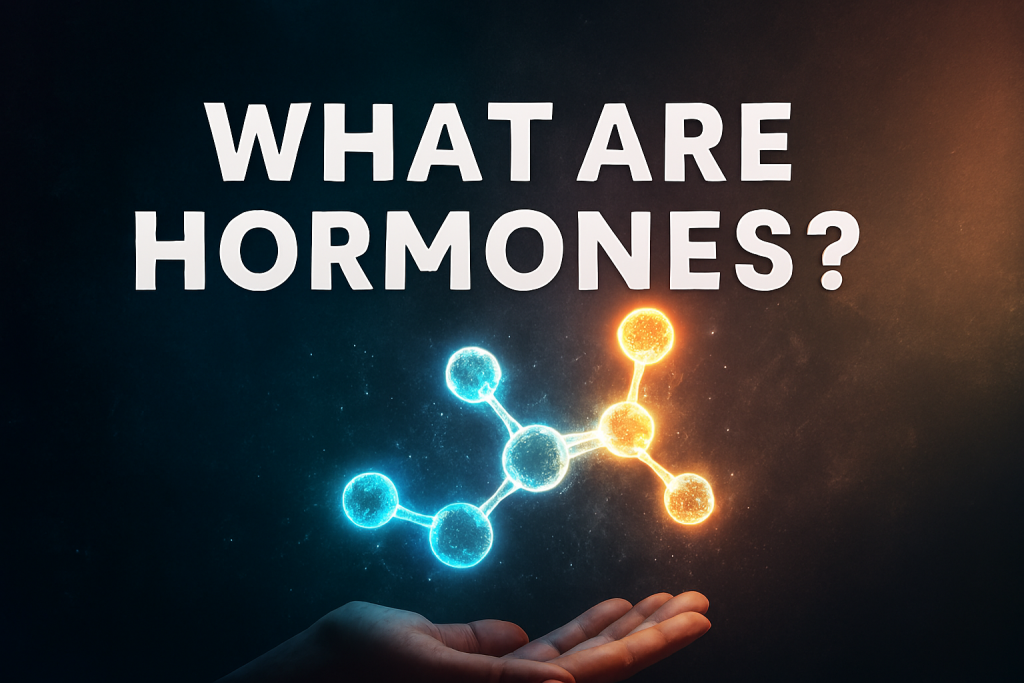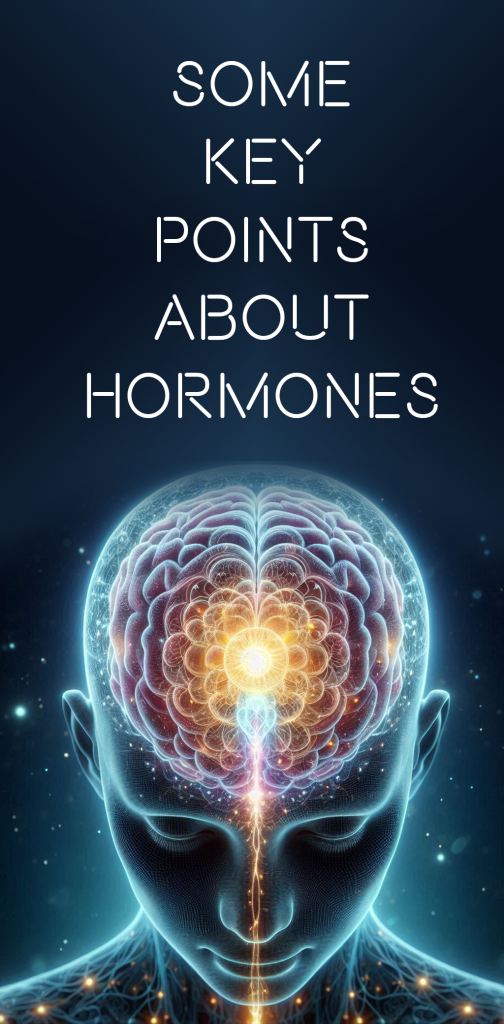
Hormones are chemical messengers that coordinate various functions in your body. They travel through your blood to reach organs, skin, muscles, and other tissues, delivering messages that guide your body’s actions. These essential molecules play a crucial role in maintaining health and well-being. Scientists have identified over 50 hormones in the human body so far.
1Functions:
- Metabolism: Hormones regulate metabolic processes.
- Homeostasis: They help maintain internal balance (e.g., blood pressure, blood sugar, fluid balance, and body temperature).
- Growth and development: Hormones influence growth.
- Sexual function: They play a role in reproductive health.
- Sleep-wake cycle and mood are also affected by hormones.
2Communication Mechanism:
- Hormones act like keys, fitting into specific receptors on target cells. If the hormone fits the receptor, it triggers a specific action.
- Communication occurs between endocrine glands (e.g., pituitary gland and thyroid) and target organs (e.g., pancreas releasing insulin to process glucose).
3
Endocrine System:
- Specialized glands (part of the endocrine system) produce and release most hormones directly into the bloodstream.
Remember, even minor changes in hormone levels can significantly impact your body and may require medical attention

Types of Hormone Glands in the Body
and
Their Functions
The human body relies on a complex network of hormone glands, collectively known as the endocrine system, to regulate various physiological processes. Here are the primary hormone glands and their functions:
Hypothalamus:
- Function: Acts as the control center, linking the nervous system to the endocrine system via the pituitary gland. It regulates body temperature, hunger, thirst, sleep, and emotional activity.
- Hormones: Releases hormones that control the pituitary gland, such as thyrotropin-releasing hormone (TRH) and growth hormone-releasing hormone (GHRH).


Pituitary Gland:
- Function: Often termed the “master gland,” it controls other endocrine glands and regulates growth, metabolism, and reproductive functions.
- Hormones: Produces growth hormone (GH), thyroid-stimulating hormone (TSH), adrenocorticotropic hormone (ACTH), and others.
Pineal Gland:
- Function: Regulates sleep patterns.
- Hormone: Melatonin, which influences sleep-wake cycles.


Thyroid Gland:
- Function: Controls metabolism, energy generation, and growth.
- Hormones: Produces thyroxine (T4) and triiodothyronine (T3).
Parathyroid Glands:
- Function: Regulates calcium levels in the blood and bone metabolism.
- Hormone: Parathyroid hormone (PTH).


Adrenal Glands:
- Function: Produces hormones that help regulate metabolism, immune system, blood pressure, and stress responses.
- Hormones: Cortisol, aldosterone, adrenaline (epinephrine), and norepinephrine.
Pancreas:
- Function: Regulates blood sugar levels.
- Hormones: Insulin and glucagon.


Ovaries (in females):
- Function: Regulates reproductive functions and secondary sexual characteristics.
- Hormones: Estrogen and progesterone.
Testes (in males):
- Function: Regulates reproductive functions and secondary sexual characteristics.
- Hormone: Testosterone.


Thymus:
- Function: Plays a role in the immune system by producing T-cells.
- Hormone: Thymosin.
Contact us and share your questions and problems with us so that we can answer you as soon as possible.

